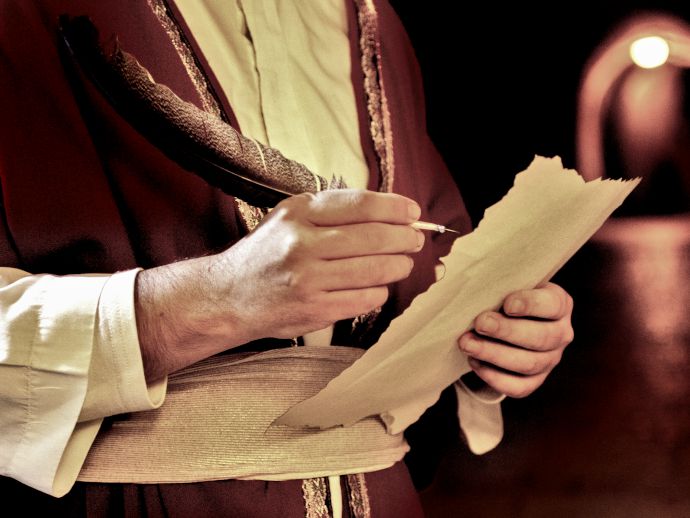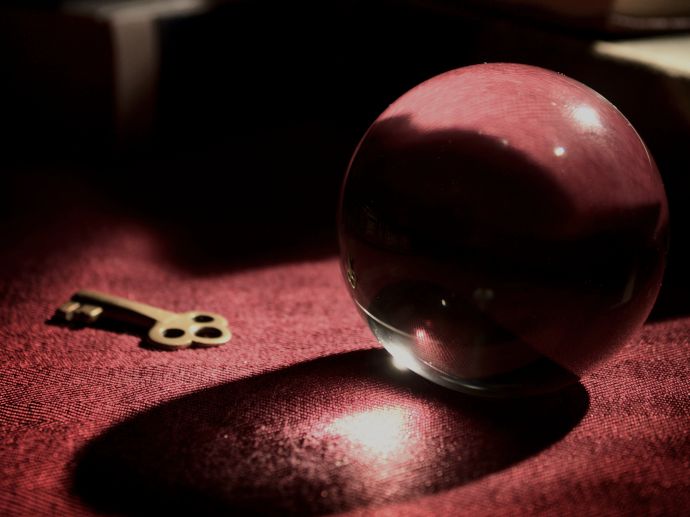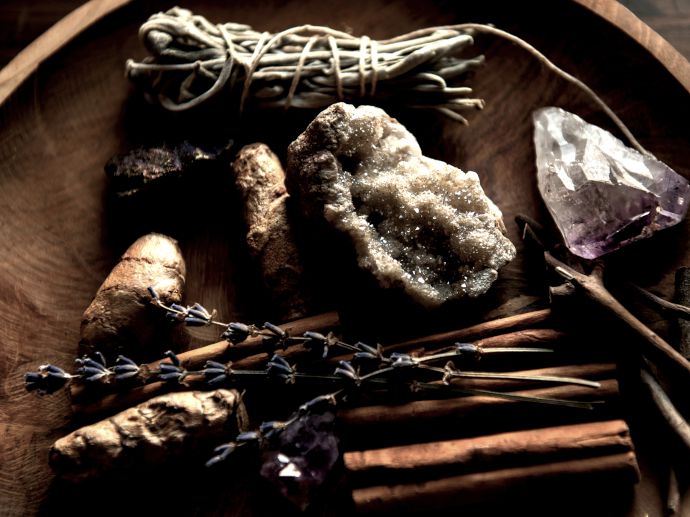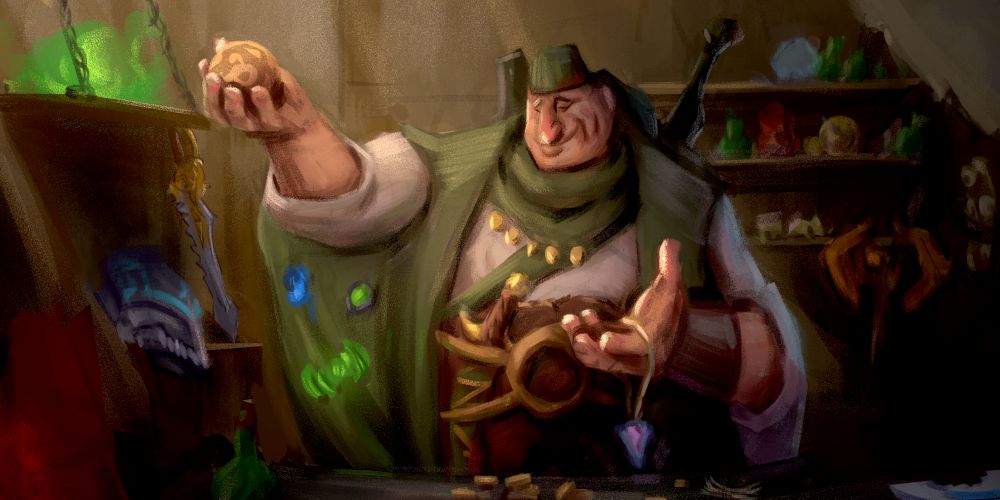There's a lot that happens from session to session in Dungeons and Dragons. Between the monsters, the villains, the artifacts, and the threat of apocalypse every week, adventurers often have their hands full no matter the campaign.
One thing that never changes? Adventures are usually profitable, if you survive. For players, that means they'll need somewhere to spend their ill-gotten gains. Enter, the merchant!
But shopping sprees in D&D can be more than just a way for the party to spend money and acquire new items. Merchants and shopkeepers are a great way to bring life to a world, given that they're one of the few non-violent world interactions.
Here are some of our top tips to help you craft better D&D merchants and shopkeepers so they're more than just empty vessels who dispense weapons, armor, and spells.
Tip 1: Make Merchants Recurring

Even if your campaign plot has players bouncing around the world and seeing all kinds of new places and monsters, they should have one location they can call home—a place they can come back to between adventures.
Money makes the world go round, and that's just as true in D&D as it is in the real world. Your party will want to spend their coin every time they return home, so why not give them a favorite shop?
That shop will need an NPC shopkeeper, and that shopkeeper should have a recurring role in the overall campaign. Breathing life into merchants will take extra work, but it's worth it.
You'll want to give them big personalities, varied inventory, and unpredictable developments to keep players interested every time they come back.
You can also use the merchant to feed information about the world to the players. Is there a shortage of magic weapons because of a recent crackdown? Have all the healing potions been bought up by the local army, spelling war on the horizon?
Changing up their wares between visits and giving them new gossip to share gives the party a reason to keep coming back. A shopkeeper is good for more than just a good deal.
Tip 2: Use Relics and Mysteries

Every time players step into a shop, you have the opportunity to grab their attention with unusual inventory.
The wizard who runs a magic scroll store may have a dragonhide-bound book tucked away just out of reach. The blacksmith who sells handforged weapons may have a remarkable axe hanging on the wall. Or maybe the merchant is just a collector of oddities.
Anytime something seems out of place, your players will latch onto it and feel compelled to investigate. Maybe let your characters with high passive perception spot unusual details.
Unique relics and artifacts are a great way to shroud your merchants in mystery, while providing a logical in-world way to impart lore and backstory to your players. Surely the merchant has a lot to say about that glowing orb of his!
Or perhaps the shopkeeper himself is the mystery. How do they know so much? Where did they obtain all these mythical items? Who are they, exactly? Maybe the shopkeeper has their own machinations, and they'll grant a discount to the party in exchange for completing jobs or favors.
All of these will help your merchants feel more alive to your players, and they'll definitely be more memorable!
Tip 3: Flavor Items Are Important

As your party runs around and works on figuring out a way to prevent the world from ending, they're going to need new clothes from time to time.
If they're heading to the frozen north, for example, remind the players that exposure can kill their characters just as quickly as any dire wolf or yeti—and give them the opportunity to purchase outfits and equipment suited to their next destination.
And just as in real life, allow your characters to showcase their personalities through the clothes they wear.
Does the wizard like to dress in colorful robes? Or the ranger like to adorn themself with trinkets they've picked up on their travels? Perhaps the tiefling loves to collect shiny stones, while the elf wants a set of necklaces because who wears the same necklace for weeks at a time?
The mundane items your party comes across might not play a role in saving the world, but they'll help your characters feel unique in a world full of wannabe adventurers.
Make sure they know there are places to acquire new clothes and decorative equipment, so they can look forward to standing out.
You Can Make Better D&D Merchants
Not every single one of the shopping trips in your D&D campaign needs to be an adventure. If your party just wants to get in, get out, and get going, you can just tell them how much the items cost and move on. There's nothing wrong with that.
But making your D&D merchants into fleshed-out NPCs who have more depth than vending machines is one of the best ways to bring your world to life. Think about it!



